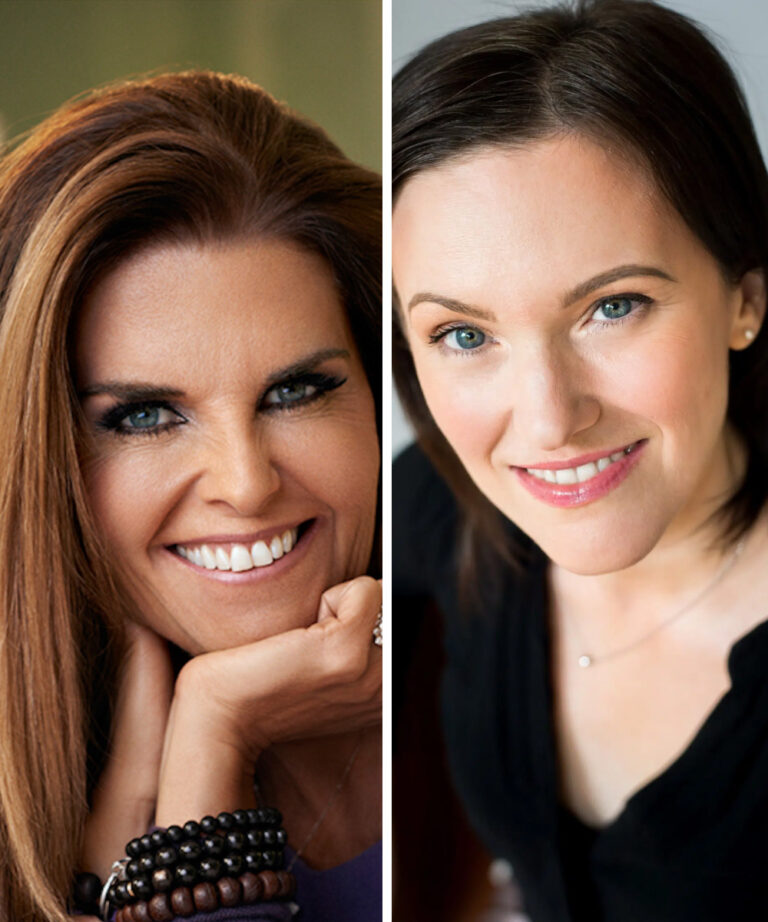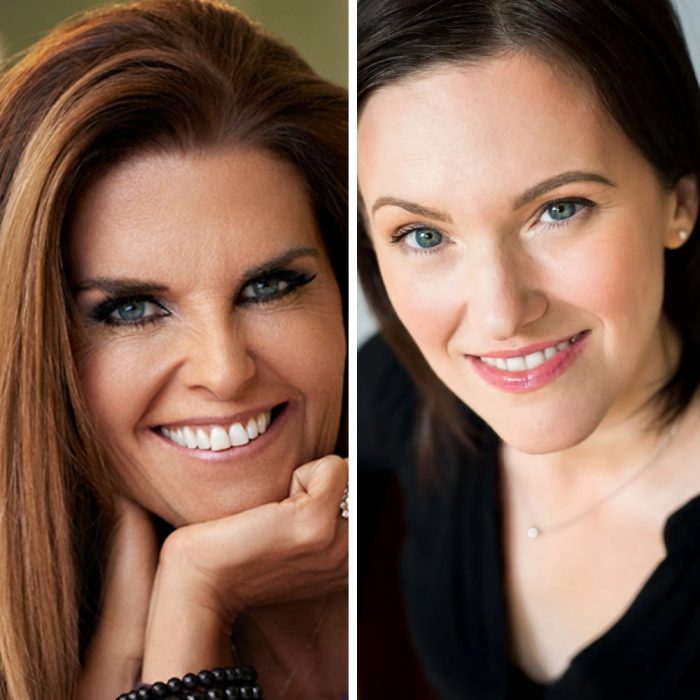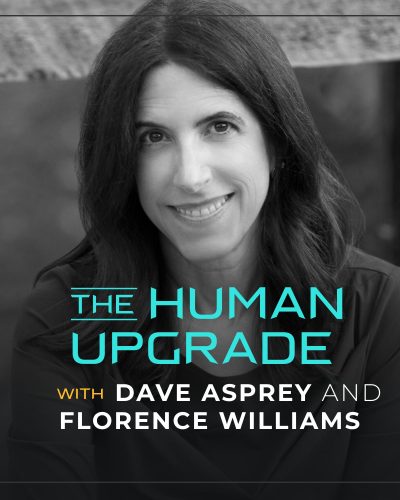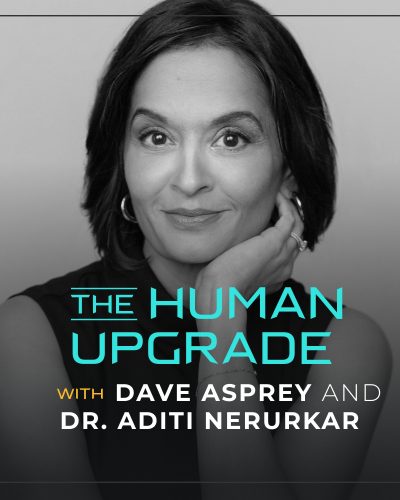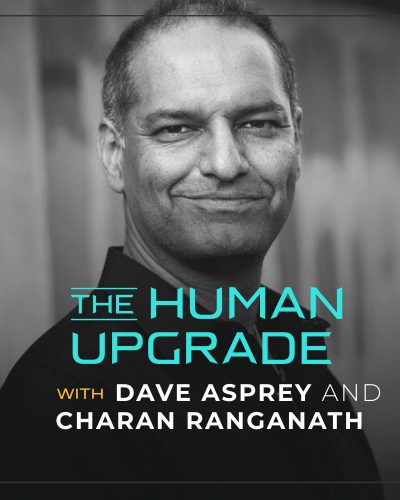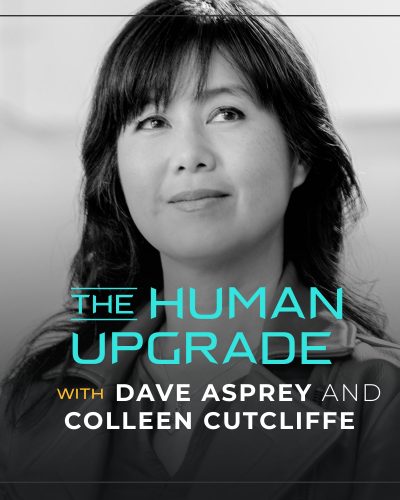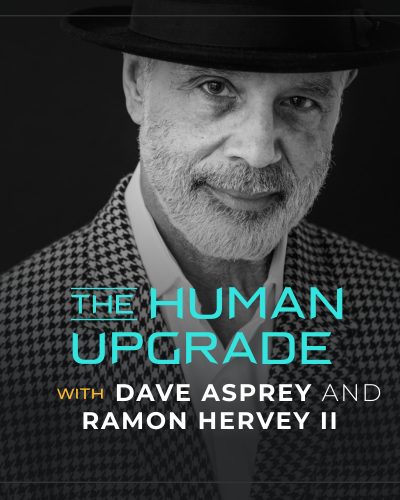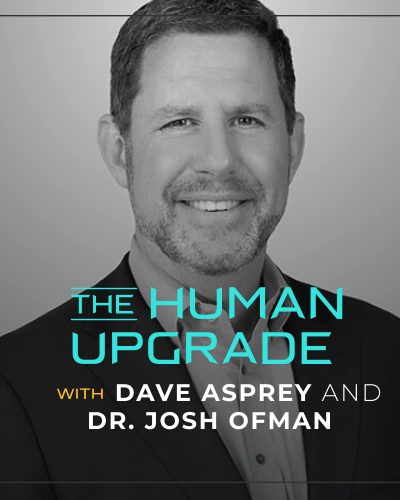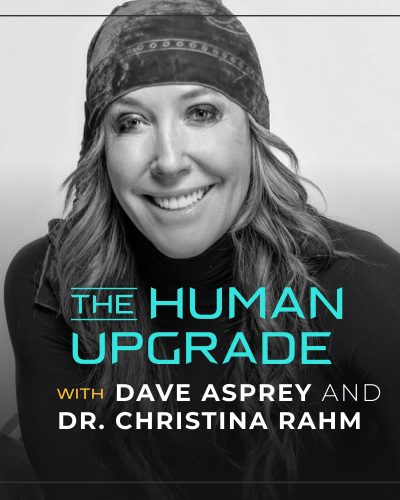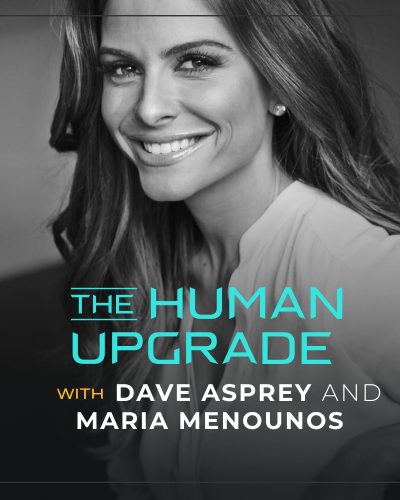In this Episode of The Human Upgrade™...
… you’ll find out how Alzheimer’s impacts women more often than men and how symptoms begin decades before you think they do. Six million people in America are experiencing Alzheimer’s. Two-thirds of them are women. My guests, Maria Shriver and Dr. Lisa Mosconi, are championing an increase in research, raising awareness and providing resources about this topic to find out why.
The Alzheimer’s spotlight falls twice yearly because it’s just that important: November for National Alzheimer’s Disease Awareness Month and National Family Caregivers Month, and June for Alzheimer’s and Brain Awareness Month.
A lot of the research happening to understand Alzheimer’s can benefit everyone. It can teach you how to lessen inflammation in your brain and get a handle on or prevent immune and metabolic brain disease. When you learn how to do that, you unlock cognitive performance and longevity.
Maria and Dr. Mosconi offer some great insight and practical tips.
"What we now know is that Alzheimer's is present in the brain doing its work for about 20 years before diagnosis.”
Maria Shriver
Maria Shriver is a champion of Alzheimer’s awareness. For two decades she’s been reporting, writing and fundraising for it, specifically relating to how it impacts women. She founded the The Women’s Alzheimer’s Movement, a nonprofit that brings together doctors, researchers and brain experts to support Alzheimer’s research, clinical trials, and information sharing. It also provides public education, prevention tips and tools for brain health.
“I think what happens is that there are small moments along the way that we all disregard,” Maria says. I think the challenge to be present in our own lives is a challenge, really, for all of us. The challenge to take note of our health is a challenge for all of us.”
Dr. Mosconi is a neuroscientist and neuro-nutritionist focused on brain science, the microbiome and nutritional genomics, specifically the early detection of Alzheimer’s. Her research on women’s neurological health has changed the way science approaches the female brain. She speaks to the more than 10 years of research that shows Alzheimer’s starts with negative changes in the brain years – if not decades – before any clinical symptoms emerge.
“It’s really important to take care of ourselves, and our brains are really one of our most important assets,” Dr. Mosconi says. “And the best way to engage in prevention is now. It’s never too late to start, but the sooner we start doing it, the better.”
Learn even more about how Alzheimer’s affects women and what to do about it in the “Links and Resources” below.
Enjoy the show!
LISTEN: “Follow” or “subscribe” to The Human Upgrade™ with Dave Asprey on your favorite podcast platform.
REVIEW: Go to Apple Podcasts at daveasprey.com/apple and leave a (hopefully) 5-star rating and a creative review.
FEEDBACK: Got a comment, idea or question for the podcast? Submit via this form!
SOCIAL: Follow @thehumanupgradepodcast on Instagram and Facebook.
JOIN: Learn directly from Dave Asprey alongside others in a membership group: https://ourupgradecollective.com.
- Our Partners
- Links & Resources
- Key Notes
Upgrade Your Magnesium:
https://magbreakthrough.com/DAVE, use code DAVE20 to get 20% off. You’ll also get FREE bottles of BiOptimizers’ best-selling products with select purchases.
Exclusive discount through November 30, 2021.
- Maria Shriver On Why Alzheimer’s Is A Woman’s Problem – #497
- The Women’s Alzheimer’s Movement
- The Shriver Report: A Woman’s Nation Takes on Alzheimer’s
- Women, Menopause and Alzheimer’s: XX Brain Connections with Lisa Mosconi, Ph.D. – #675
- lisamosconi.com
- “The XX Brain: The Groundbreaking Science Empowering Women to Maximize Cognitive Health and Prevent Alzheimer’s Disease”
- “Brain Food: The Surprising Science of Eating for Cognitive Power”
- I immediately kind of started asking questions. I’m a journalist, I’m naturally curious, and I found very few answers. – 5:32
- A few years later, her two sisters also started showing exactly the same symptoms, whereas their brother did not. And so, as a new scientist, my question was, why is that? – 7:34
- Encouraging people to see a neurologist is a scary thing. People say like, “I don’t want to know if I have Alzheimer’s. I don’t want to know if there’s something going on, because there’s nothing I can do about it.” – 9:01
- Alzheimer’s disease is not a disease of old age, but rather, the disease starts with negative changes in brain years if not decades before any clinical symptoms emerge. – 10:03
- In reality, estrogen, like testosterone, really serves a number of functions in the brain that have nothing to do with having kids, but everything to do with having energy. So estrogen, and estradiol in particular, there’s a number of functions that have everything to do for energy production in a woman’s brain. – 12:39
- I think the small signs are what we all miss. And if I talk to everybody who kind of was in my position as a kid, the kind of universal thing is, I wish I’d taken my parent to a neurologist sooner. I wish I had paid attention to them when they said, “Gosh, I can’t remember this,” or, “Gosh, I feel like this.” – 14:49
- Taking supplements for a couple of months may not be as effective as eating the right foods correctly for years. – 17:57
- Women who are chronically stressed and they’re having issues with menopause show higher grades of brain shrinkage, as compared to women who are still going through menopause, but they’re not as stressed out. – 19:33
- We went and got funding for the Shriver Report, partnered with the Alzheimer’s Association and reported that for the very first time to the nation, to leaders, to researchers and scientists, this is a woman’s disease. This disease discriminates against women, and it’s not just because they’re living longer. – 21:55
- We need to have tools that allow us as clinicians to go into a woman’s brain and measure that woman’s hormones to really find the right dose for that particular woman’s brain and understand, are your receptors still working? Are they still using the estrogen? – 24:36
- No, there’s no 100% on anything, but I’m telling you, it’s the best information that we have today. And even if we prevent Alzheimer’s a year, two years, three years in a family, that’s going to save you financially. That’s going to save you emotionally. That’s going to save you cognitively. – 26:57
- I’ll give you three nuggets. They do not require testing though, because testing is really expensive. But I would say, if you do want to talk to a medical professional, then look for somebody who specializes in Alzheimer’s prevention. – 28:18
- How do families care for parents as they age? Whose job is that? How do we take it from duty to joy? How do we build our cities to incorporate that? How does corporate America respond to people as caregivers? So, that’s a huge other conversation, but I think it’s a really interesting one, and needed one. – 33:15
